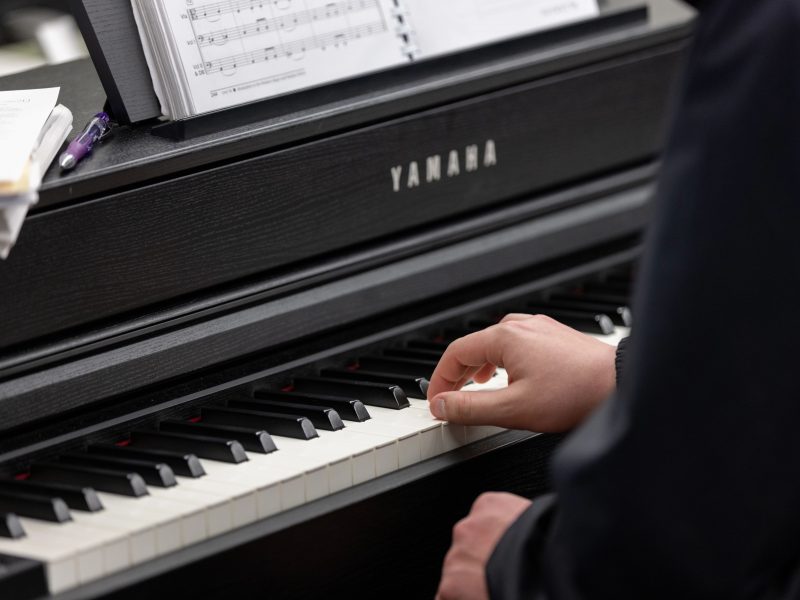Music-based intervention
Overview
Could making music be a resource to advance health and wellness outcomes? NAU health equity researchers are evaluating the benefits of music-based interventions (MBIs) on mental and physical health in rural and culturally diverse populations.
Impact of the COVID-19 pandemic
The COVID-19 pandemic has significantly impacted mental health, with one in six youth and one in five adults in Arizona experiencing a mental health disorder each year.
Pilot study
This pilot study focuses on Indigenous and Hispanic individuals in northern Arizona, participating in behavioral health programs at The Guidance Center (TGC) and Haven Health (HH). The project is funded by The NARBHA Institute and the Center for Health Equity Research.
Goals
- Designing the MBI: Creating a culturally appropriate music-based intervention through focus groups and interviews with staff and participants
- Testing the MBI: Assessing the feasibility, acceptability, and impact of the MBI with pre- and post-test measures
Culturally centered music traditions and techniques
Engaging participants in active music-making, facilitated by local Indigenous musicians, to ensure cultural relevance and effectiveness.
Harmonizing health and music
This study aims to reduce mental and physical health symptoms through culturally tailored MBIs, demonstrating the efficacy of non-clinical interventions.
Participant engagement
Participants include youth, young adults, and nursing home residents in northern Arizona who will receive compensation for their participation.
How we measure success

Surveys will assess changes in mental and physical health symptoms, working memory, empathy, sense of belonging, social cohesion, self-esteem, connection to community, and culture and coping skills.
Launching the pilot study
The project team is developing the MBI curriculum by integrating musical science, cultural knowledge, and behavioral health interventions and piloting them with the selected participants in fall 2024.
Research team
- Principal Investigator: Katherine Mommaerts, Assistant Professor in the Department of Social Work
- Co-Principal Investigator: Ariel Roddy, Indigenous feminist scholar and Assistant Professor in the Department of Criminology and Criminal Justice
- Co-Investigators: Rebecca Maniglia, Julie Baldwin, Julie Roddy
- Research Assistant: Craig Yarbrough
